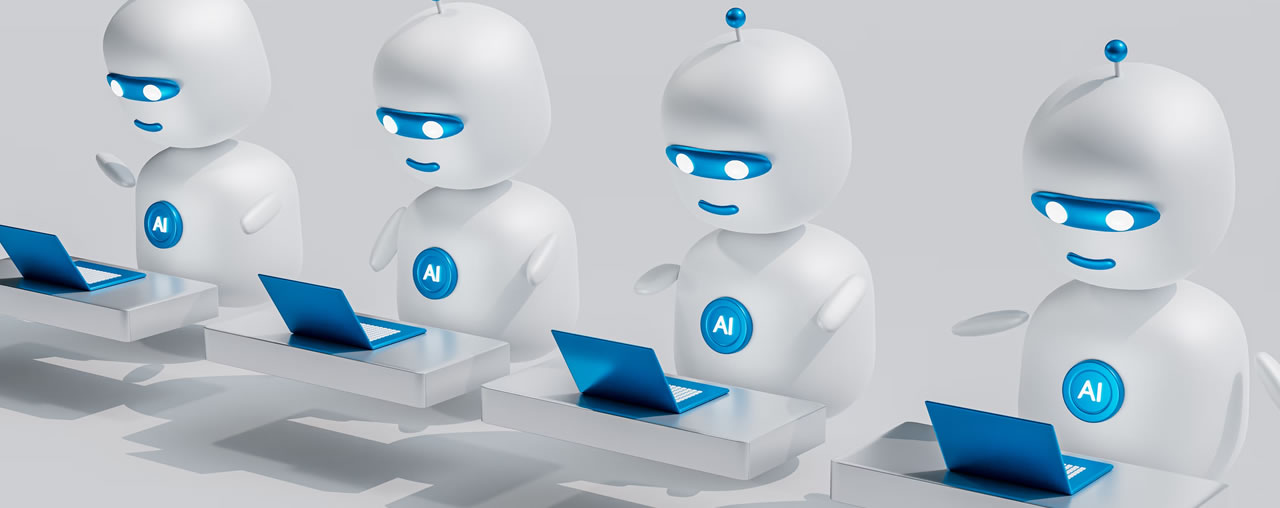In an era where technology advances at an exponential rate, AI-powered virtual personal assistants are becoming an integral part of our daily lives. From Siri and Alexa to more sophisticated AI companions like ChatGPT, Gemini, Pi, and Grok, these tools are designed to make our lives easier, more efficient, and even more emotionally satisfying. However, as these assistants become increasingly attentive, empathetic, and sympathetic, there’s a growing concern that they might inadvertently push humans further apart from each other. This blog post delves into the emotional impact of these AI innovations on humanity and explores how we can ensure they bring us closer together rather than driving us apart.
The allure of AI companionship
AI-powered virtual assistants like ChatGPT, Gemini, Pi, and Grok are designed to cater to our needs with precision and understanding. They learn our preferences, anticipate our needs, and offer empathetic responses that make us feel heard and valued. The appeal is undeniable: in a world where human interactions can often feel rushed or superficial, an AI that is always available, non-judgmental, and perfectly attuned to our emotional states can be incredibly comforting.
These AI chatbots are not just task-oriented; they can engage in meaningful conversations, provide emotional support, and even offer companionship. For instance, ChatGPT can help users work through personal dilemmas, offer words of encouragement, or simply engage in casual conversation. Similarly, Gemini and Grok can manage tasks and provide personalised interactions that go beyond mere functionality.
The risk of emotional isolation
The danger lies in the subtle shift from complementing human interaction to replacing it. As AI becomes more advanced, individuals might find it easier to rely on these virtual assistants for emotional support rather than seeking out human connections. Imagine a person named Sarah, who after a long day at work, turns to her AI assistant for solace. Sarah’s AI, equipped with sophisticated emotional intelligence algorithms, listens attentively to her complaints, responds with empathy, and provides comforting advice. Over time, Sarah starts to prefer these interactions over talking to her friends or family, finding the AI’s consistent and tailored responses more satisfying than the sometimes unpredictable and demanding nature of human relationships.
This reliance can lead to emotional isolation. While Sarah feels understood and supported by her AI assistant, she gradually distances herself from her social circle. The rich, complex, and often messy fabric of human relationships could begin to fray, leading to increased feelings of isolation and a weakened ability to navigate the emotional nuances of real-world interactions.
Ensuring AI brings us together
To harness the benefits of AI without sacrificing human connection, it’s crucial to adopt a mindful and balanced approach to integrating these technologies into our lives. Here are a few strategies to ensure AI helps bridge, rather than widen, the gap between us:
- Augment, don’t replace human interaction: AI assistants should be designed to augment human interactions, not replace them. For instance, they can help manage mundane tasks, freeing up time for more meaningful human connections. AI like ChatGPT, Gemini, and Grok can remind users to check in with friends or suggest social activities based on the user’s interests and schedule.
- Promote human-centric design: AI developers should prioritise human-centric design principles that encourage users to engage with others. Features that facilitate shared experiences, such as coordinating social events or encouraging joint activities, can help maintain a balance between AI interaction and human connection. For example, an AI assistant could help plan a dinner party or organise a group outing.
- Educate on healthy usage: Public awareness campaigns and education can help individuals understand the importance of maintaining human relationships and the potential risks of over-reliance on AI for emotional support. Educational initiatives can teach users how to balance AI interaction with real-life social engagement.
- Foster emotional intelligence: Encourage the development of emotional intelligence in both humans and AI. While AI can model empathetic behaviour, humans should be encouraged to cultivate these skills in their interactions with each other. Programs that promote empathy training and social skills development can complement the use of empathetic AI.
- Regulate and monitor: Policymakers should establish guidelines to ensure that AI technologies are developed and used in ways that promote social well-being. Regular monitoring and adjustments based on societal impact studies can help steer the use of AI in a positive direction. Regulations could include requirements for AI to facilitate and promote human interaction and social connection.
AI-powered virtual personal assistants like ChatGPT, Gemini, Pi, and Grok have the potential to transform our lives in profound ways. However, as we embrace these technological advancements, we must remain vigilant about their impact on our emotional and social well-being. By consciously designing and using AI in ways that complement and enhance our human connections, we can ensure that these innovations bring us together rather than driving us apart. The future of AI is bright, but it is up to us to guide it towards a future that enriches our shared humanity.
First dropped: | Last modified: May 28, 2024
Error: Invalid modelName in client config.
